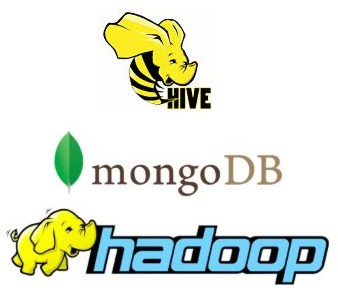| Hive on Hadoop for MongoDB |
| Written by Kay Ewbank | |||
| Thursday, 22 August 2013 | |||
|
There’s a new version of 10gen’s MongoDB Connector for Hadoop with added support for Apache Hive and incremental MapReduce jobs.
The MongoDB Connector for Hadoop presents MongoDB as a Hadoop-compatible file system so that real-time data from MongoDB can be read and processed by Hadoop MapReduce jobs. It examines the MongoDB collection and calculates a set of splits from the data. Each split is assigned to a node in the Hadoop cluster, and in parallel, Hadoop nodes pull data for their splits from MongoDB (or BSON) and process them locally. Hadoop then merges the results and streams the output back to MongoDB or BSON. The major changes to the new version start with the Apache Hive with SQL-like queries across live MongoDB data sets. Hive is a query engine for Hadoop that provides an alternative to writing MapReduce jobs for analyzing Hadoop Distributed File System (HDFS) datasets. Using Hive with MongoDB won’t be completely straightforward; some MongoDB data types such as ObjectID don’t have direct matches in Hive, and it may be tricky to work out how to express field mappings between Hive fields and MongoDB fields so that all cases are handled correctly because of the different underlying data models. |
TestSprite 2.0 Sees User Growth 29/10/2025 TestSprite has announced a six times increase in users alongside a successful funding round. TestSprite is an agentic testing tool. Initially released in beta last fall, the number of users has risen [ ... ] |
Linus - Garbage Code And AI Code 15/10/2025 Linus Torvalds seems to have had a bit of a relapse lately in his efforts to moderate his comments on code. One of his latest outbursts merits more than a surface analysis. |
More News
|


